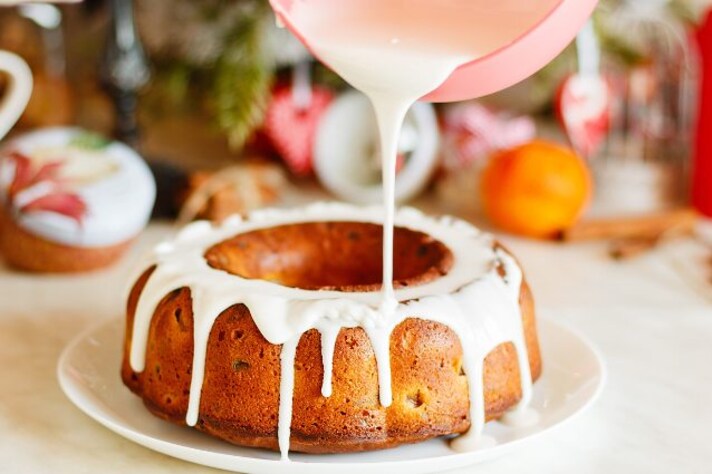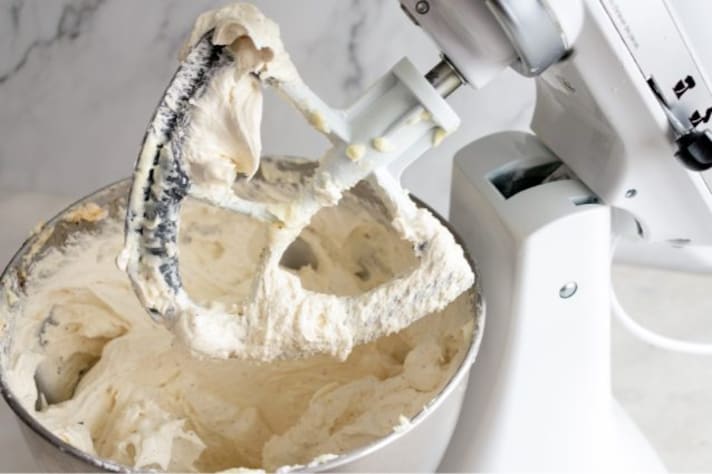How to Thin Store-Bought Frosting and Icing
Store-bought frosting is a convenient baking essential, but often too thick for some uses. To thin it, gradually add small amounts of milk, water, or cream. Read ahead to find out how to make it thinner, depending on what you need it for - and also how to re-thicken it, in case you went too far!

Even the most seasoned bakers will agree on one giant fact: store-bought frosting is a godsend. It comes in handy when you're in a pinch, offers a variety of flavors and textures, and saves a significant amount of time. Of course, to truly make it your own and adjust it for all your recipes, you need to work with it. The first step in mastering store-bought frosting is learning how to thin it out.
Why Store-Bought Frostings and Icings Need Thinning
Store-bought frostings and icings are typically quite thick. This thickness is intentional, ensuring the frosting holds its shape on cakes, withstands temperature changes during transport, and has a long shelf life. However, this consistency isn't always ideal for every baking need. Whether you want a smooth drizzle for cookies or a lighter, fluffier frosting for cakes, thinning is often necessary to achieve the perfect texture and application. Thick frostings can be difficult to spread evenly and may not provide the delicate finish you desire for certain desserts.

How to Thin Store-Bought Frosting
Thinning out store-bought frosting can be a simple process if you know what to add. Generally, you can use liquids like milk, water, or cream to loosen the consistency. A small amount of liquid can go a long way, so it's crucial to add it gradually. Start with a teaspoon of liquid, mix it thoroughly, and assess the texture before adding more. This method ensures you achieve the desired consistency without turning your frosting into a runny mess.
From Thick Frosting to Drizzle
When you want to transform your frosting into a drizzle for cakes, cupcakes, or cookies, you need it to be smooth and pourable. For this, add liquid slowly, about a teaspoon at a time, mixing well after each addition. Milk is often the best choice for a creamy consistency, but water can work if you prefer a lighter drizzle. The goal is to achieve a texture that flows easily but isn't too runny.
Frosting Cakes and Cupcakes
For frosting cakes and cupcakes, you want a spreadable but firm consistency. Adding a bit of cream can help achieve a smoother texture that's easier to spread evenly over your baked goods. Start with a teaspoon of cream and mix until the frosting is smooth. If it's still too thick, add more cream a little at a time until you reach the desired consistency.

Chocolate Frosting
Thinning chocolate frosting can be slightly different due to its rich, dense texture. Warmed milk or coffee can be excellent choices for thinning chocolate frosting, enhancing the flavor while achieving the right consistency. As always, add the liquid slowly, mixing thoroughly between additions to avoid over-thinning. This method not only makes the frosting easier to spread but also adds a delightful hint of extra flavor.
Decorating with a Piping Bag
For decorating, you need your frosting to be slightly thinner than usual but still able to hold its shape. Adding a tiny bit of liquid, such as milk or cream, can help achieve this. A few drops at a time are usually enough to reach the perfect consistency for piping intricate designs. This way, your frosting will be smooth enough to flow through the piping bag without losing the sharpness of your designs.

How to Re-Thicken Overly Thinned Frosting
Oops, went a bit too far with the liquid? Don't worry, you can thicken it back up. Adding powdered sugar is the most effective way to re-thicken your frosting. Start by adding a tablespoon of powdered sugar and mixing it in thoroughly. Continue adding small amounts until you reach the desired consistency. If you're worried about making it too sweet, you can balance the taste by adding a pinch of salt. Another trick is to refrigerate the frosting for a while; cooler temperatures can firm up the consistency without altering the flavor.
;Resize,width=767;)


;Resize,width=712;)
